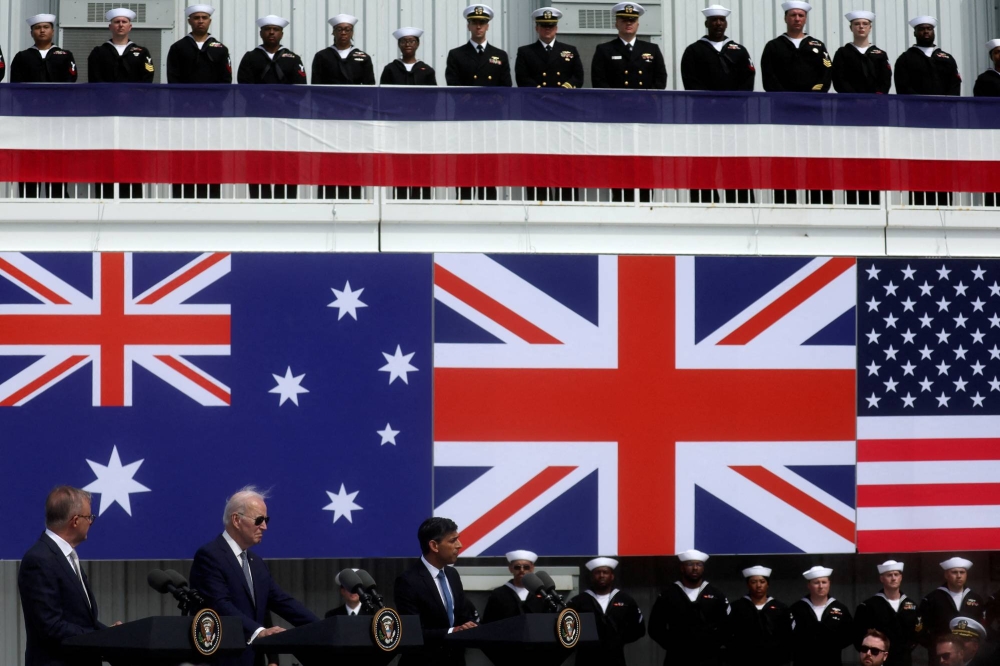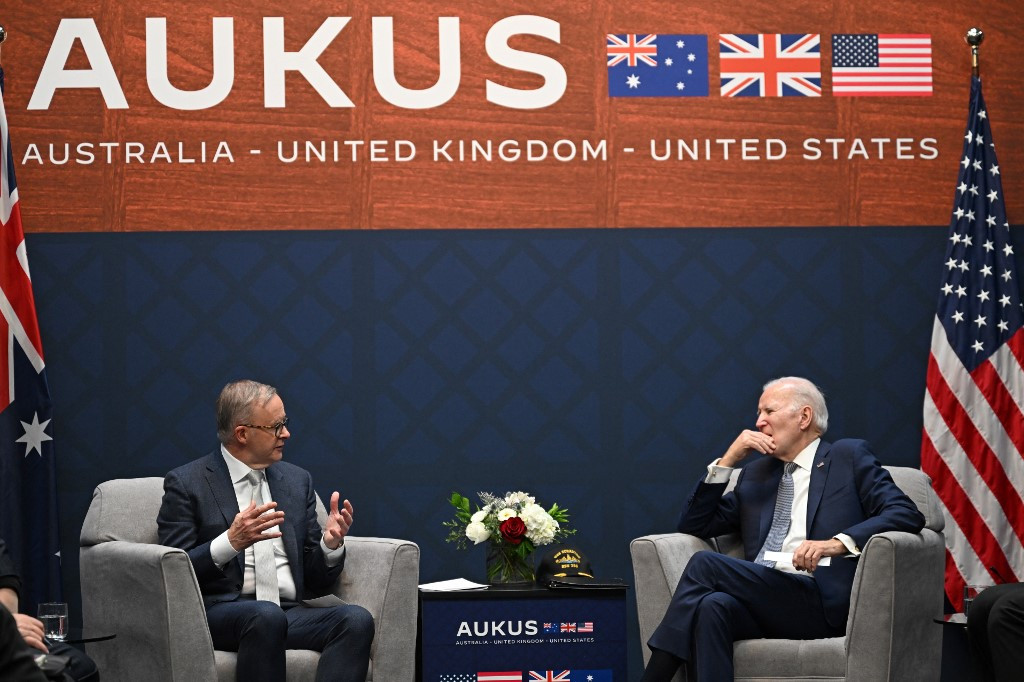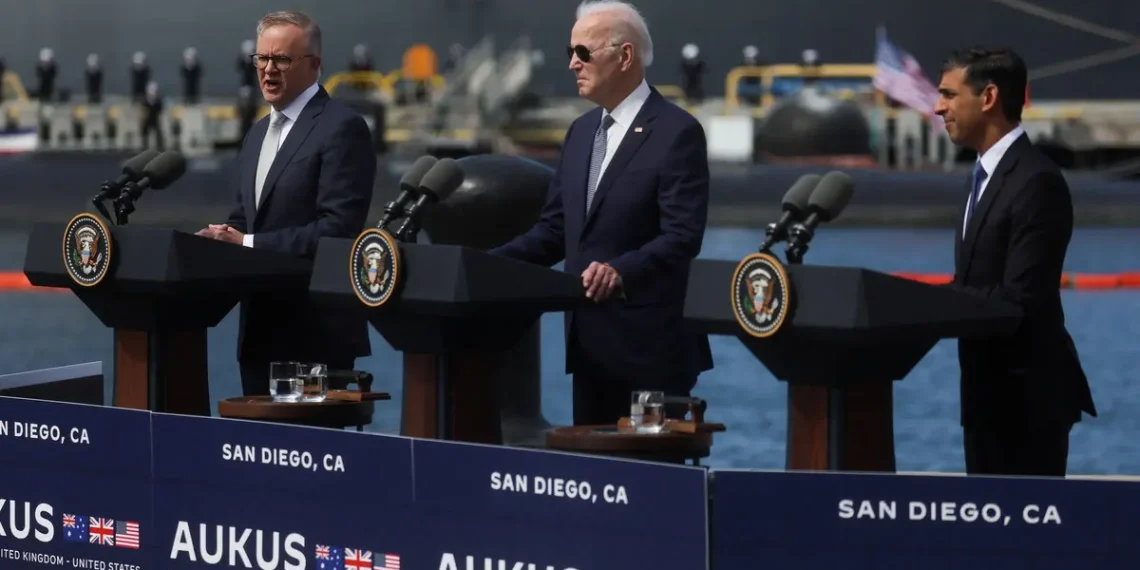Britain, the U.S., and Australia are contemplating broadening their AUKUS security pact to incorporate Japan despite facing export-control hurdles from the U.S. that challenge their efforts to counter China’s influence in the Indo-Pacific region.
Discussions on potential collaboration between the three AUKUS partners and Japan are set to commence this year, with a summit between U.S. President Joe Biden and Japanese Prime Minister Fumio Kishida scheduled for Wednesday, likely addressing Japan’s potential involvement in AUKUS “advanced capabilities” initiatives.

However, challenges persist due to Japan’s need to fortify its cyber defenses and enforce stricter regulations for safeguarding classified information.
Established in 2021, AUKUS aims to confront China’s expanding dominance, with its initial focus on delivering nuclear-powered submarines to Australia.
While the first phase does not suggest Japan’s involvement, the second phase focuses on advancing capabilities and sharing technologies across various domains like quantum computing, undersea operations, hypersonics, artificial intelligence, and cyber technology.
Japan’s Possible Inclusion in AUKUS
In a joint statement, Britain, the U.S., and Australia expressed consideration for collaboration with Japan on AUKUS Pillar II projects, recognizing Japan’s strengths and close defense partnerships.
However, factors like technological innovation, financing, industrial capabilities, data protection measures, and the promotion of regional peace and stability will be taken into account.
China has criticized the AUKUS pact as perilous, warning of potential regional arms escalation. Japanese Chief Cabinet Secretary Yoshimasa Hayashi stated that no decisions had been made regarding cooperation with AUKUS.

Obstacles abound, especially concerning Pillar II, due to U.S. restrictions on technology sharing with Australia and Britain, coupled with Japan’s ongoing efforts to enhance its security posture and cyber defenses.
While Japan has taken steps to bolster cybersecurity and expand its cyber defense capabilities, challenges remain regarding intellectual property protection and accountability for safeguarding classified information.
The U.S. Deputy Secretary of State Kurt Campbell emphasized the importance of Japan’s actions in this regard, highlighting the need for comprehensive measures to facilitate deeper collaboration within the AUKUS framework.




